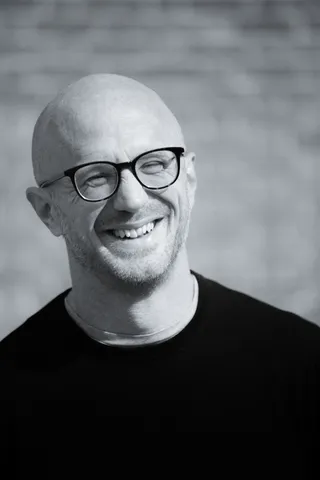Guaranteeing Your Success

Better Questions is supported by readers like you. If you get value from my writing, consider becoming a supporting member. Exclusive content, weekly deep-dives, free beta-access to future courses and more. Thanks.
----
There is really only one prescription necessary for guaranteeing your success.
It is:
Preserve your options.
But before we get there, let’s take a take step back and talk about power laws.
Humans tend to think mechanistically. We think in the “Newtonian Mode” - we prefer to believe that things follow the general outline of Newtonian physics, where small inputs produce small outputs, and large inputs produce large outputs.
The world, however, is not a machine (nor, a vampire). It is far closer to an organism. In organisms, the size of the input does not necessarily equal the size of the output: a single pill might kill you, a minor shift in ambient temperature might change an entire ecosystem for thousands of years.
What’s more, when people come together to form organizations and societies and culture, we tend to exhibit similar behaviors. We act as others act, we become aware of what others know, we avoid places where others have found danger. Even if our individual behaviors feel unique to our circumstances and special to us, they usually are not; we are part of our zeitgeist, whether we want to be or not.
These two factors - the organic nature of the world, the emergent patterns of behavior in a social system - mean that resources within human systems are generally distributed via a power law distribution.
That looks like this:

There’s a looooooong period of low resource distribution, followed by a sharp spike upwards.
This is sometimes referred to as a “80/20 distribution”, where 20% of the inputs produce 80% of the outputs (20% of the people hold 80% of the wealth, 20% of the movies produce 80% of the revenue, 20% of the people you know have 80% of the fun, etc).
The reality is often more extreme, since success tends to beget even more success. The most famous actors aren’t just famous - they get offered better roles, allowing them to even become more famous. The most successful companies use their capital to buy more companies, and to lobby Washington for favorable tax laws, allowing them to hold more capital. 80/20 tends to be conservative: you’ll more often see something like 90/10, or 99/1.
I’ve talked about power laws before, but the reason I’m belaboring the point now is that your opportunities for success will also follow a power law distribution.Throughout your life, about 20% of the opportunities you face will produce about 80% of your success.
In other words:
Most of what you do in life will produce middling results, and a few things you do will produce massive results.
Guaranteeing our success, then, becomes a matter of making sure we are ready when those opportunities present themselves.
Most people who “fail” (and I use that term loosely - the only person who gets to define “success” or “failure” in your life is you) do so not because they didn’t try, or because they didn’t want to succeed, but because they were too busy working on unimportant things when their big opportunities presented themselves.
Missing out on one of these 80/20 opportunities, then, represents a massive opportunity cost. If we are to be successful, we MUST remain open to opportunities when they arise - and learn to distinguish an average opportunity from a spectacular one.
How do we do that? It’s not like most of us can laze around waiting for opportunity to strike. We need to work, we need to live, we need to love and be loved.
When choosing whether to do something - to pursue an opportunity, to work somewhere, to explore a relationship, etc - we can focus on three things (as Dan Nicholson of Nth Degree CPAs puts it):
Least effort,
Least risk,
Most options.
We look for opportunities that will require the least amount of effort, because our ability to expend effort is finite. There’s only so much work we can realistically take on. Therefore, the more effort we spend on one opportunity, the less we’ll have available when a new opportunity appears, limiting our options.
We look for opportunities that will require the least amount of risk, because large amounts of risk makes us vulnerable. If we risk it all and fail, we get knocked out of the game - and won’t be around to capitalize on future opportunities, limiting our options.
We look for opportunities that give us the most amount of options, because we know that not all opportunities are created equal. Increasing the amount of options we have available to us increases our chances of finding one of the “power law opportunities.”
All this boils down to one thing: optionality.
The more we are able to capitalize on opportunities as the arise - the more options we have - the more likely our success becomes.
Not everything you do will succeed, of course; that’s the point.
We just need to make sure we’re in the game when the right opportunity comes along.
Yours,
Dan
COOL STUFF TO READ:
A beautiful recounting of loss and an unlikely friendship with a Goose.
Hard to describe, obviously, but it's stayed with me since I read it, which is, for me, the highest praise.
The song being referenced in the title (and some adorable footage of Sonic Youth being goofy):
Better Questions Newsletter
Join the newsletter to receive the latest updates in your inbox.
